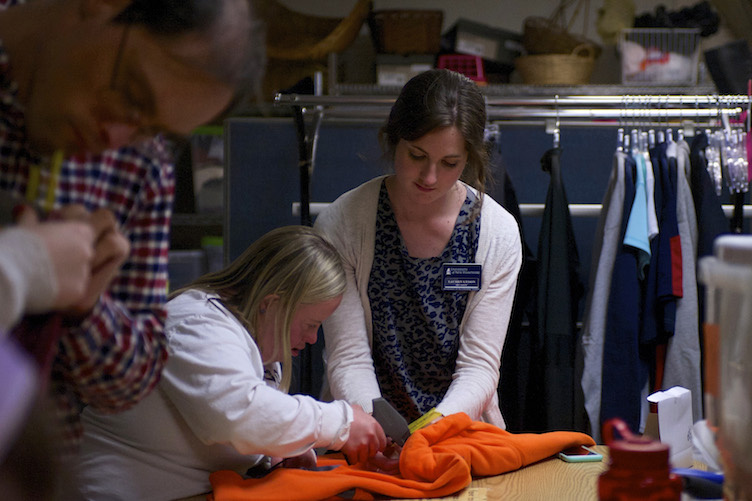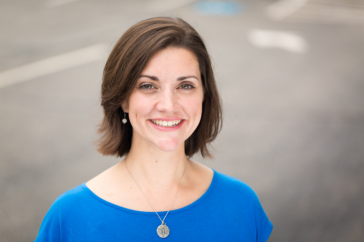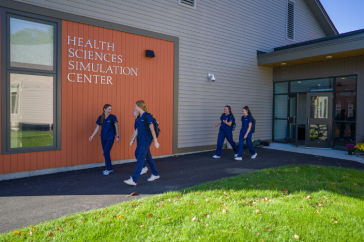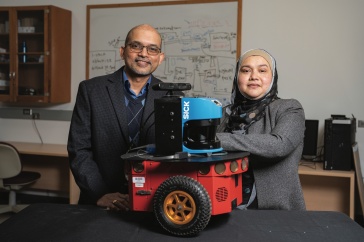
Lauren Lydon ’16 helps a member of Friends in Action price a top as part of an OT life skills program.
Some of the best partnerships are those bred from need. Take the collaboration between the occupational therapy department and Friends in Action, a nonprofit that serves adults with developmental disabilities.
Clinical assistant professor of occupational therapy John Wilcox knew his department needed more community organizations at which OT students could gain practical experience providing services to populations with specific requirements, such as those with traumatic brain injuries, post-concussion syndrome or developmental disabilities.
And Heidi Chase, director of Friends, knew there was a need for additional opportunities for her groups’ members. So, she and Wilcox got together and talked. The result of their conversation led to pairing the OT life skills program with a Friends learning program at the Echo Community Thrift Shop in Durham.
"Our students are getting real-world experience in adapting tasks and jobs to a wide range of people, and that will be useful in the future when they are dealing with different populations."
OT students designed and implemented plans for a 12-week course aimed at strengthening the skills of Friends in Action members in areas such as money and time management, technology, healthy living, social and communication interactions and cooking.
This semester six students have spent part of their Mondays at the Main Street thrift store, helping the members with a variety of tasks, including sorting and pricing clothing, making dog toys out of T-shirts to be donated to the Cocheco Valley Humane Society, and shopping for food and then preparing a meal.
“These three tasks incorporate skills that are needed to relate to jobs in the community. I believe there is a symbiotic relationship between the group members and the students. While enhancing their skills within the community, we enhance our skills on interacting with members in the community whether it’s being more patient, flexible or communicating ways to simplify tasks,” says senior Lauren Lydon.

Kate Messler, Paula Fitzhenry and Ellen Berrigan making cookies.
Holly Niemczyk ’16 helps members with food shopping and meal preparation and kitchen safety using adaptive equipment and smartphone apps to help sequence the steps of a recipe with pictures.
“The members engage in activities in which they can apply what they learn during group to their home environment and community, where they can work towards independence,” Niemczyk says. “And it is clear the members enjoy their time based on the friendships they have made and their smiles throughout the day.”
Says Wilcox, “Our students are getting real-world experience in adapting tasks and jobs to a wide range of people and that will be useful in the future when they are dealing with different populations. Simulators are great but nothing beats the actual hands-on experience.”
Chase, whose members run the thrift store with volunteers on Mondays and Tuesdays — days when it was formerly closed — would agree. She has seen the positive effects of members applying new skills, or refining those they already have, of working alongside students, talking and socializing. Feeling useful.
“People are learning here. People are talking here. People are working here,” she says. “All the things we wanted to happen are happening. They are building community.”
-
Written By:
Jody Record ’95 | Communications and Public Affairs | jody.record@unh.edu


















































